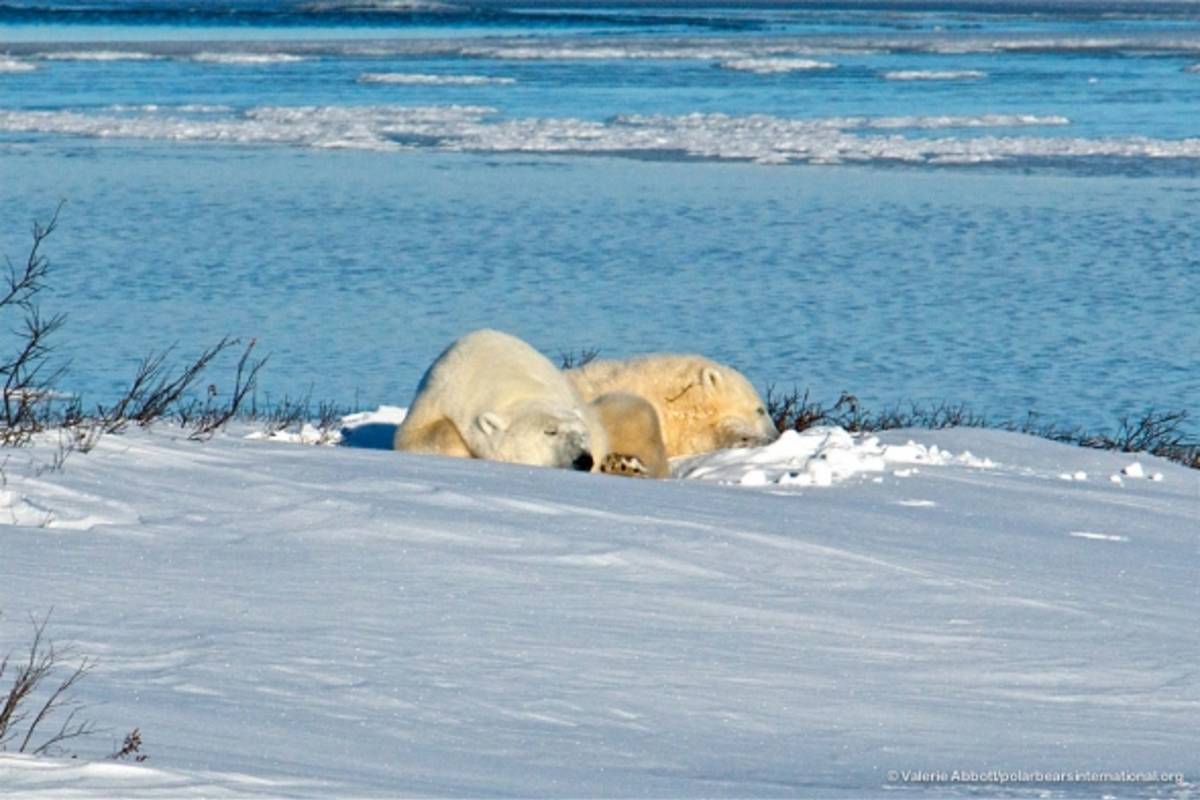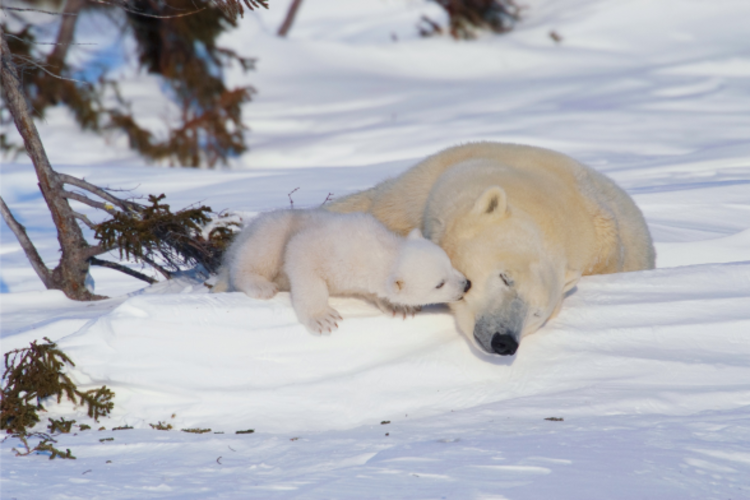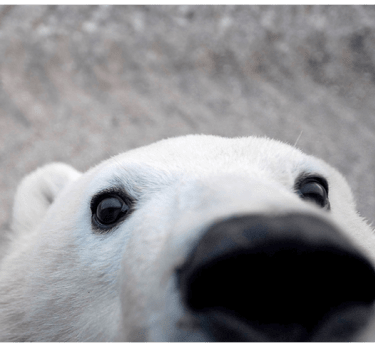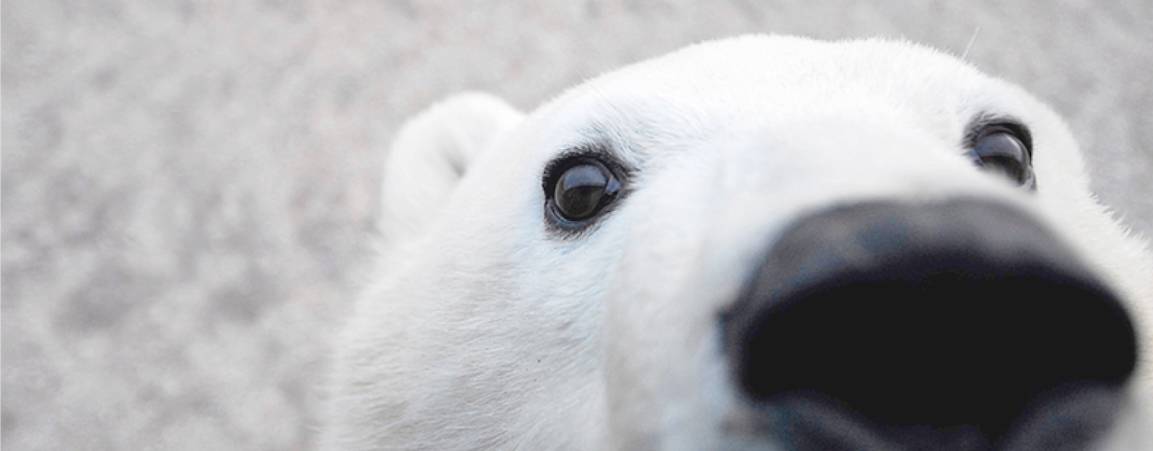Polar bears enjoy a good snooze as much as anyone. However, most of what we know about polar bear sleep patterns comes from the summer months—the time when people living in the High Arctic, researchers, and tourists are more likely to journey through the realm of the polar bears. It is also significantly easier to actually spot the bears and observe their behavior during this time of year because the arctic summer has 24 hours of daylight.
Based on such summertime observations, plus what we see in polar bears in zoos, this is what we know about their general sleeping behavior: Polar bears will usually choose a dry comfortable spot with good visibility, and often use their paw, a block of ice or a rock as a pillow. They will often dig shallow sleeping pits (sometimes known as day beds) if they are on soft ground such as gravel, snow or sand; these polar bear beds have been measured to be about 1.5 meters in diameter and up to 0.5 meters in depth.
During the summer, polar bears will spend up to a third of their time sleeping. Researchers who observed sleeping polar bears in the wild found that the bears would sleep for seven to eight hours in one go. They also found that the bears had a tendency to sleep more during the day than during the night. However, as I mentioned above, the summer days have 24 hours of sunlight, which makes it hard to know whether the specific time of day really made a difference to the animals or whether it was mere coincidence.
My own observations from doing behavioral studies in zoos tell me that polar bears often seem to stay (more or less) awake during the day and instead sleep through the night. However, this could simply be because their home is quieter during zoo closing hours. I have also come across polar bears sleeping incredibly soundly at all times of the day on the sea ice north of Svalbard. There is still much to learn about these spectacular creatures!
Besides the longer periods of sleep, polar bears also like to take shorter naps of an hour or two - this can be any time of the day but especially after a good meal. I don't know about you, but I can definitely relate.
For answers to more polar bear questions, follow Thea on Facebook and Twitter at @BioThea.

















